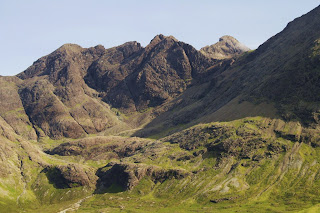Cain and Abel Genesis 4
New International Version (NIV)
Adam made love
to his wife Eve, and she became pregnant and gave birth to Cain.She said,
“With the help of the Lord I have
brought forth a man.”
2
Later she gave birth to his brother Abel.
Now Abel
kept flocks, and Cain worked the soil.
3 In the course of time Cain
brought some of the fruits of the soil as an offering to the Lord.
4 And Abel also brought
an offering—fat portions from some of the firstborn of his flock. The Lord looked with favour on Abel and his
offering,
5 but on Cain and his offering he did not look with
favour. So Cain was very angry, and his face was downcast.
6 Then the Lord said to Cain, “Why are you angry? Why is your face
downcast?
7 If you do what is right, will you not be accepted? But
if you do not do what is right, sin is crouching at your door; it desires to
have you, but you must rule over it.”
8 Now Cain said to his brother
Abel, “Let’s go out to the field.” While they
were in the field, Cain attacked his brother Abel and killed him.
9 Then the Lord said to Cain, “Where is your brother Abel?”
“I don’t
know,” he replied. “Am I my brother’s keeper?”
10 The Lord said, “What have you done? Listen! Your brother’s blood
cries out to me from the ground.
11 Now you are under a curse and
driven from the ground, which opened its mouth to receive your brother’s blood
from your hand.
12 When you work the ground, it will no longer yield
its crops for you. You will be a restless wanderer on the earth.”
I have always been more interested in working the soil
than animal husbandry and felt, along with Cain, that G-d was unfair in not
accepting his offering. Perhaps this biblical myth also refers to the rise of
agriculture, the ability to store crops giving rise to early
civilisations and making possible todays national and ideological wars (The Curse of Cain)
I notice from the next part of Genesis
that although Adam and Eve were in a sense the first man and woman in a generation or two there are whole tribes and cities.
I was led to this biblical story by one of Rilke's many brilliant poems.
(Abel speaks)
I am not. The brother did something to me
that my eyes didn’t see.
He veiled the light.
He hid my face with his face.
Now he is alone.
I think he must still exist,
for no one does to him what he did to me.
All have gone the same way:
all are met with his rage,
beside him all are lost.
I sense my older brother lies awake
As if accused.
Night offers itself to me,
not to him.
Rilke’s Book of Hours translated by Anita Barrows and Joanna Macy.
Der blasse Abelknabe spricht:
Ich bin nicht. Der Bruder hat mir was getan,
was meine Augen nicht sahn.
Er hat mir das Licht verhängt.
Er hat mein Gesicht verdrängt
mit seinem Gesicht.
Er ist jetzt allein.
Ich denke, er muss noch sein.
Denn ihm tut niemand, wie er mir getan.
Es gingen alle meine Bahn,
kommen alle vor seinen Zorn,
gehen alle an ihm verloren.
Ich glaube, mein großer Bruder wacht
wie ein Gericht.
An mich hat die Nacht gedacht;
an ihn nicht.
Rainer Maria Rilke, 22.9.1899, Berlin-Schmargendorf
picture by James Tissot






















